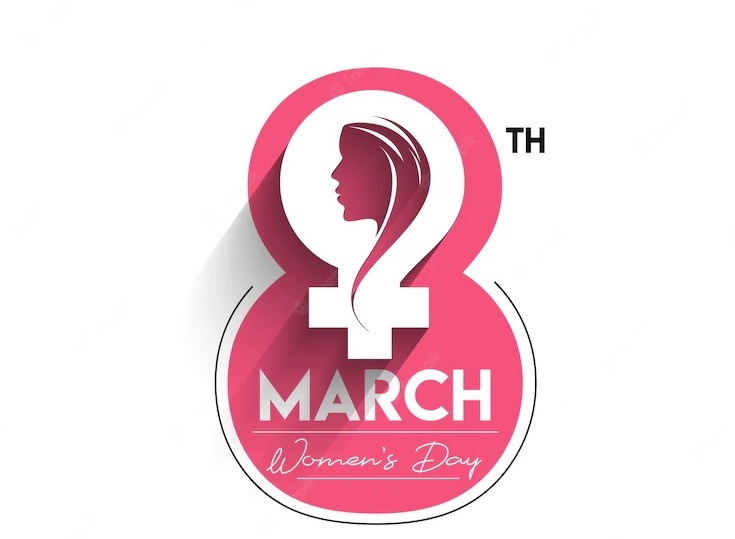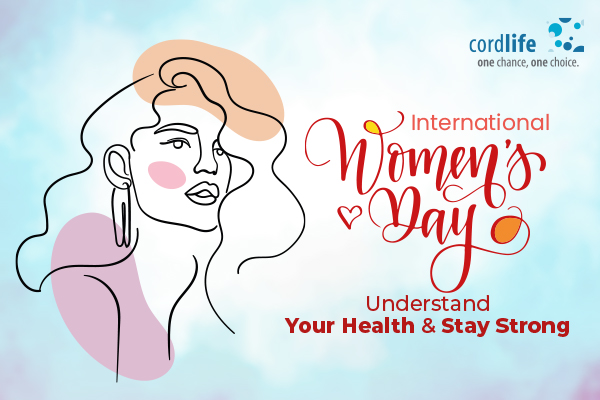Table of Contents
You may belong to any field. You may be a homemaker, an entrepreneur, a teacher, or a healthcare practitioner. Your strength and determination define you. Moreover, these two qualities in you are making this world better every day.
However, we know that “Rome was not built in a day”.
Significance of Women’s Day

8th March 1977 was declared as International Women’s Day. The basis of this women’s day was mostly on gender equality, women’s abuse, and reproductive rights. Reproductive rights would further mean discussing some major points related to women’s health issues, through which you’ll be aware of Sexually Transmitted Infections, Menstrual Health, and the Protection from female genital mutilation.
This women’s day let’s throw light upon some of the women’s health problems and how they can be treated.
What Are The Common Women’s Health Issues?
The considerable health problems in women are:
Menstrual Health
Every month 1.8 women across the world menstruate. That is inclusive of girls, and women at large1. The normal ovulation cycle is from 2 to 7 days a month for a woman of childbearing age. Moreover, menstruating regularly means you’re leading a healthy life, but there are many social stigmas and taboos to make you believe that you are missing out on a normal childhood. Moreover, lack of knowledge, lack of some of the basic facilities in the area, and lack of sanitary products might leave menstrual health and hygiene needs unmet. Irregular periods, Polycystic Ovarian cyst, and cervical cancer are some of the menstrual health issues, which might also give rise to fertility problems.
Urinary Tract Infection
Around 60% of women across the world have urinary tract infections. Health problems like diabetes, abnormal urinary tract, using birth control pills during sexual intercourse, and change in vaginal line due to menopause can lead to urinary tract infection. Along with these, lack of hygiene facilities and sanitation in many places might lead to this kind of health problem. With this infection, you might feel like visiting the bathroom frequently, pain in your lower abdomen and back and burning sensation in the urinary tract.
Sexually Transmitted Diseases
According to CDC, due to sexual contact, Sexually Transmitted Diseases occur in 1 out of 4 of you, in-between the ages of 14 and 19 years3. This problem spreads through vaginal, anal and oral contact, as a result of which you might feel vaginal itching, rashes, and pain during sexual intercourse. If you have this problem, start your treatment as prescribed by your doctor.
Maternal Health Issues
Pregnancy is a wonderful emotion in your life. However, it comes with its own set of challenges. Additionally, during pregnancy, your blood count is expected to drop resulting in low haemoglobin levels during pregnancy. However, in some of you, some of the pre-existing health conditions like diabetes, blood pressure, and thyroid might turn out to be risky both for you and the baby inside you.
Mental Health Issues
If you have depression or anxiety or any other mental health disorder, you’re not alone. 23% of women suffer from mental health problems. Pregnancy and postpartum depression is also another side of women’s health.
Heart Disease
You might be a young girl in your 20s or maybe you’re a woman who’s on her menopause, there’s a possibility of your suffering from this disease. Due to existing health conditions like diabetes, blood pressure, stress factors, obesity, and physical inactivity can give rise to heart disease, a common women’s health problem.
How To Find Solutions To Women’s Health Problems?
Let not the above-mentioned problems put you down in any way. Government and non-government organisations like WHO and UNICEF and some health care sectors are working round the clock to empower you health-wise and take initiative to deal with your health problems:
- You’ll be educated on various women’s health problems.
- You’ll be provided with hygiene and sanitation facilities (especially in the areas which do not have them)
- You’ll be supported with absorbent materials or sanitary napkins, even vending machines for sanitary napkins.
- Follow your doctor’s advice to keep the urinary tract healthy and to keep the menstrual cycle, cholesterol, triglyceride, blood pressure, diabetes, and weight under control with proper medication, regular exercise, and by making healthy food choices.
“If you check the health of a woman, you check the health of society” – Rebecca Miller.
Break the bias, this women’s day, by keeping a tab on your health and staying strong and confident.
You can also go through our blogs to understand the various aspects of women’s health, pregnancy, postpartum, baby care, and cord blood banking.
Happy Women’s Day!
